November 2019 Newsletter

Publication Date: November 30, 2019
Good Talk Toolkit Unveiled at Coalition Meeting

The annual member meeting of the Coalition November 18 in Boston marked an exciting new chapter in the messaging project aimed at developing language that encourages people to talk about what matters most to them. “This year is a serious shift to getting the public on board,” said Coalition co-chair Dr. Atul Gawande. “It should be scandalous that we are not routinely having conversations about what people’s priorities are about quality of life. It should be a mistake if those conversations don’t happen.”
The focus of the meeting was the unveiling of the Good Talk Toolkit. It was created based on Coalition research done in partnership with the Cambia Health Foundation from October 2018 through August of 2019. The latest phase of the project tested updated ‘campaign’ materials with the public to see how they resonated across the five consumer segments identified by earlier research, including posters with variations on the Good Days Good Talk concept. In the end, people preferred the most direct approach. “People appreciated the simplicity of the language, the fact that it was straightforward and felt positive,” said Zamawa Arenas, CEO of Flowetik, the Coalition’s research partner.
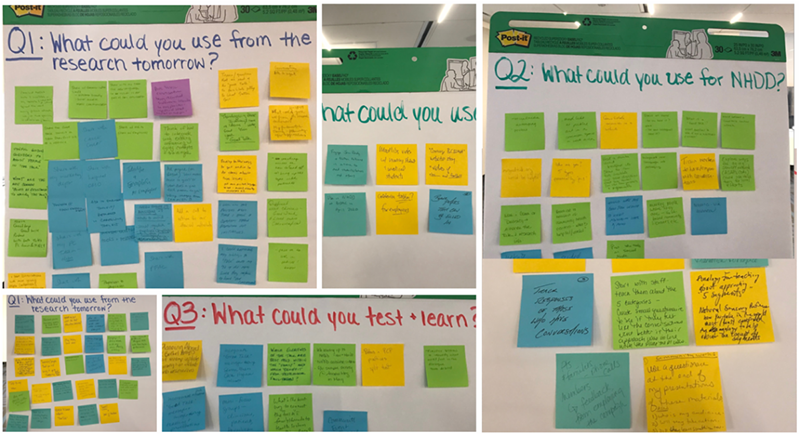
The Good Talk Toolkit synthesizes all the research learnings to date and includes ready to go messaging, templates for posters and flyers, a logo, and social media sample posts. You can see it on the Coalition website. During breakout sessions, everyone shared ideas on how they would use the research, how the toolkit would impact their work for National Healthcare Decisions Day in April, how to measure the impact of the messaging, and who they wanted to tell about this project. Reactions ranged from brainstorming about using it at future events to the telling of personal stories about having the talk with family members or friends dealing with serious illness.
If you have a story to share, please let us know! Contact Anna.Gosline@bcbsma.com
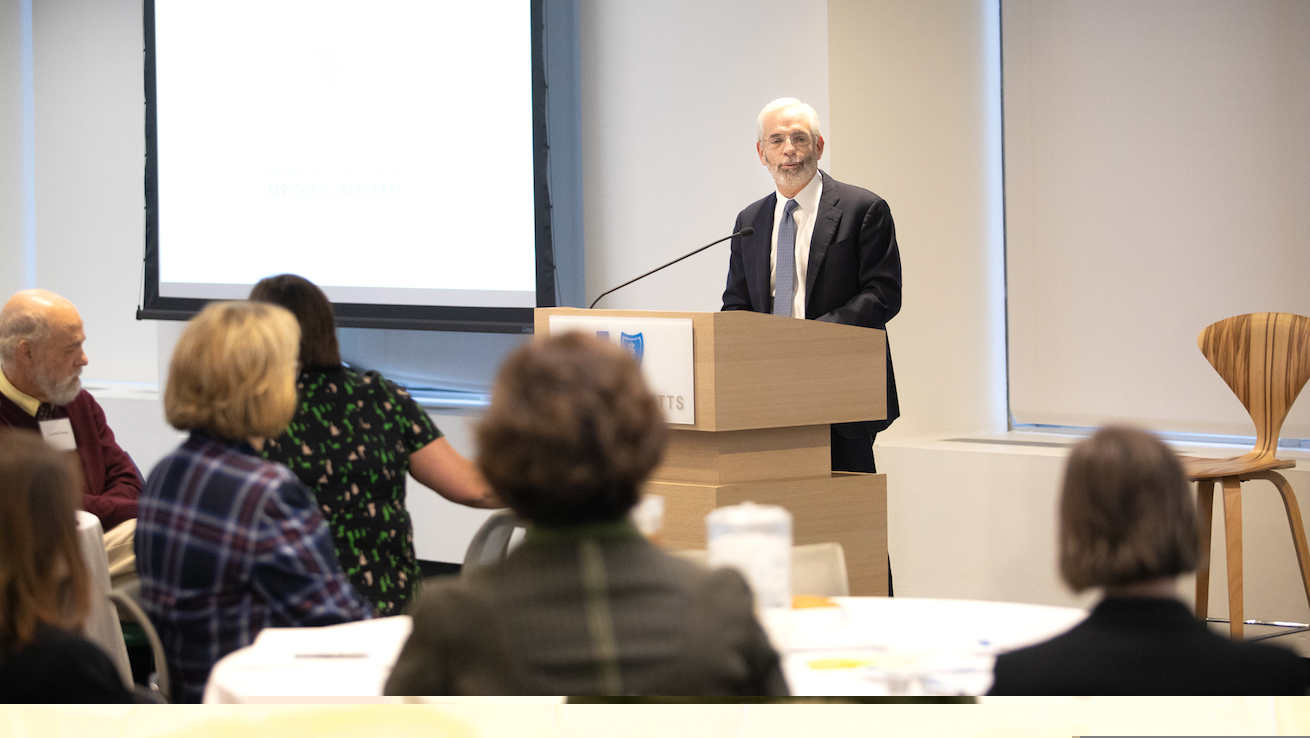
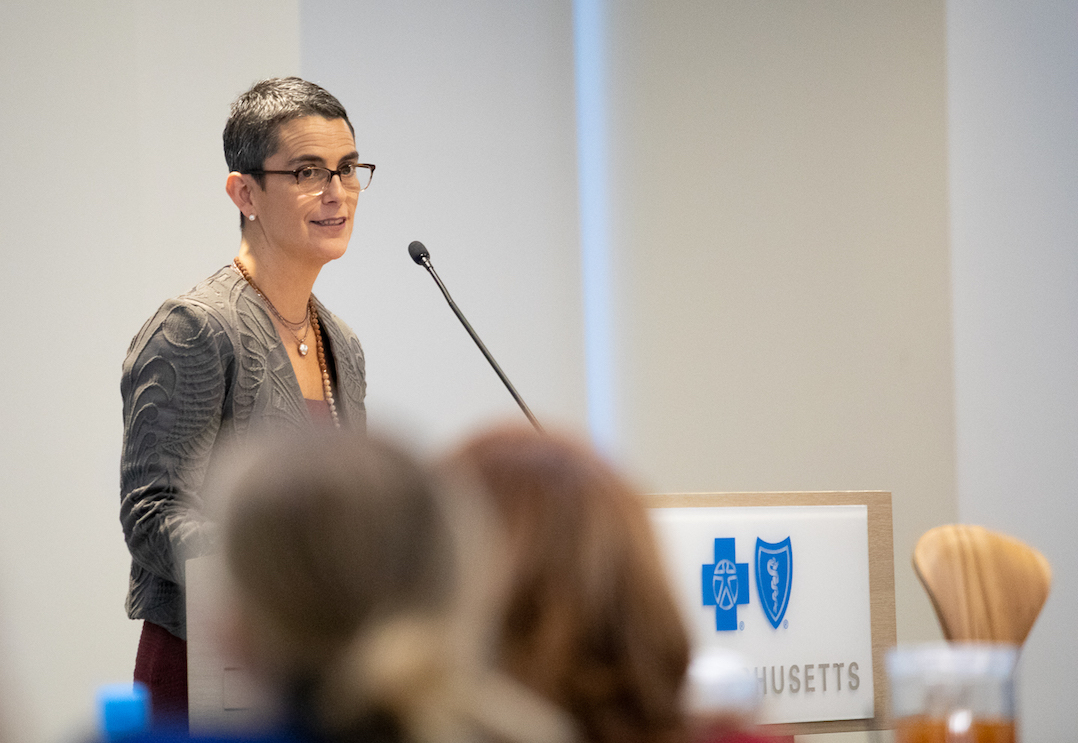
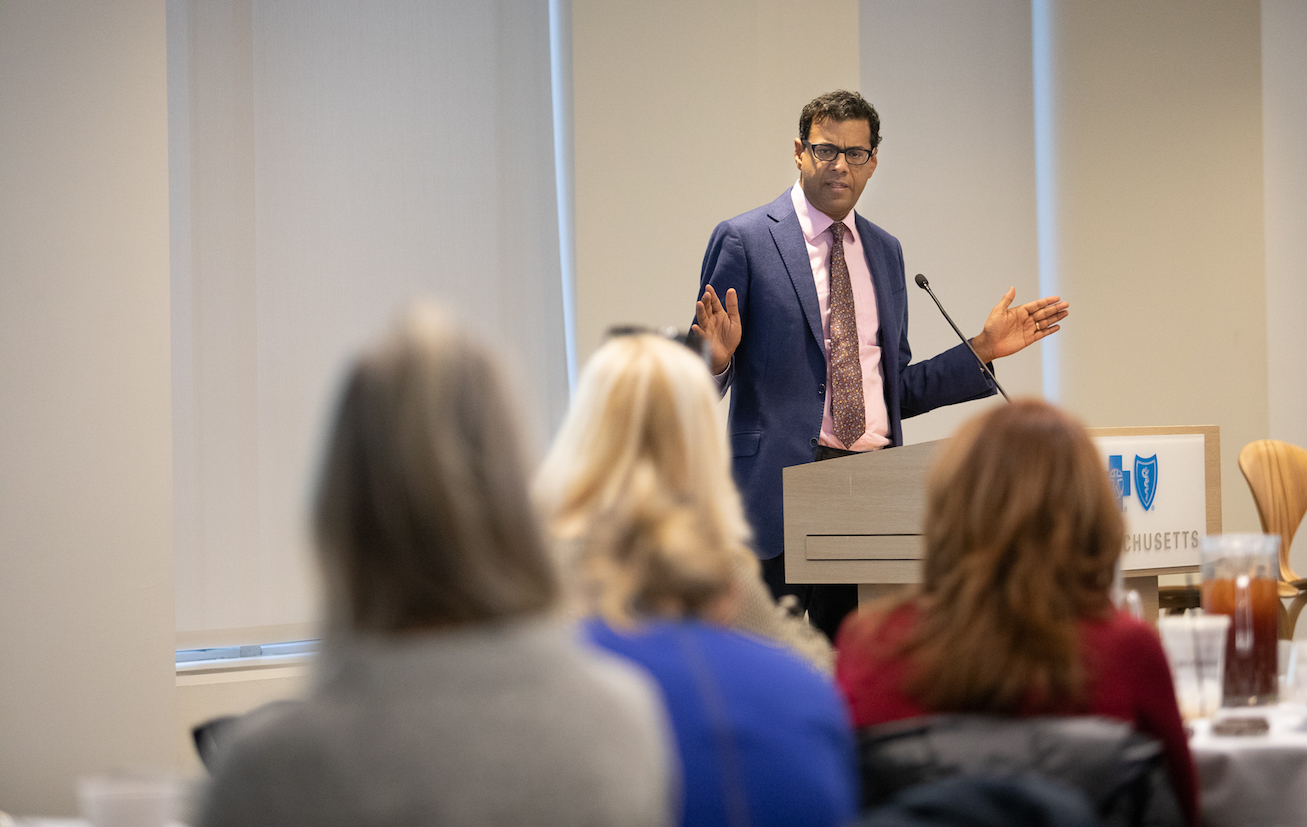
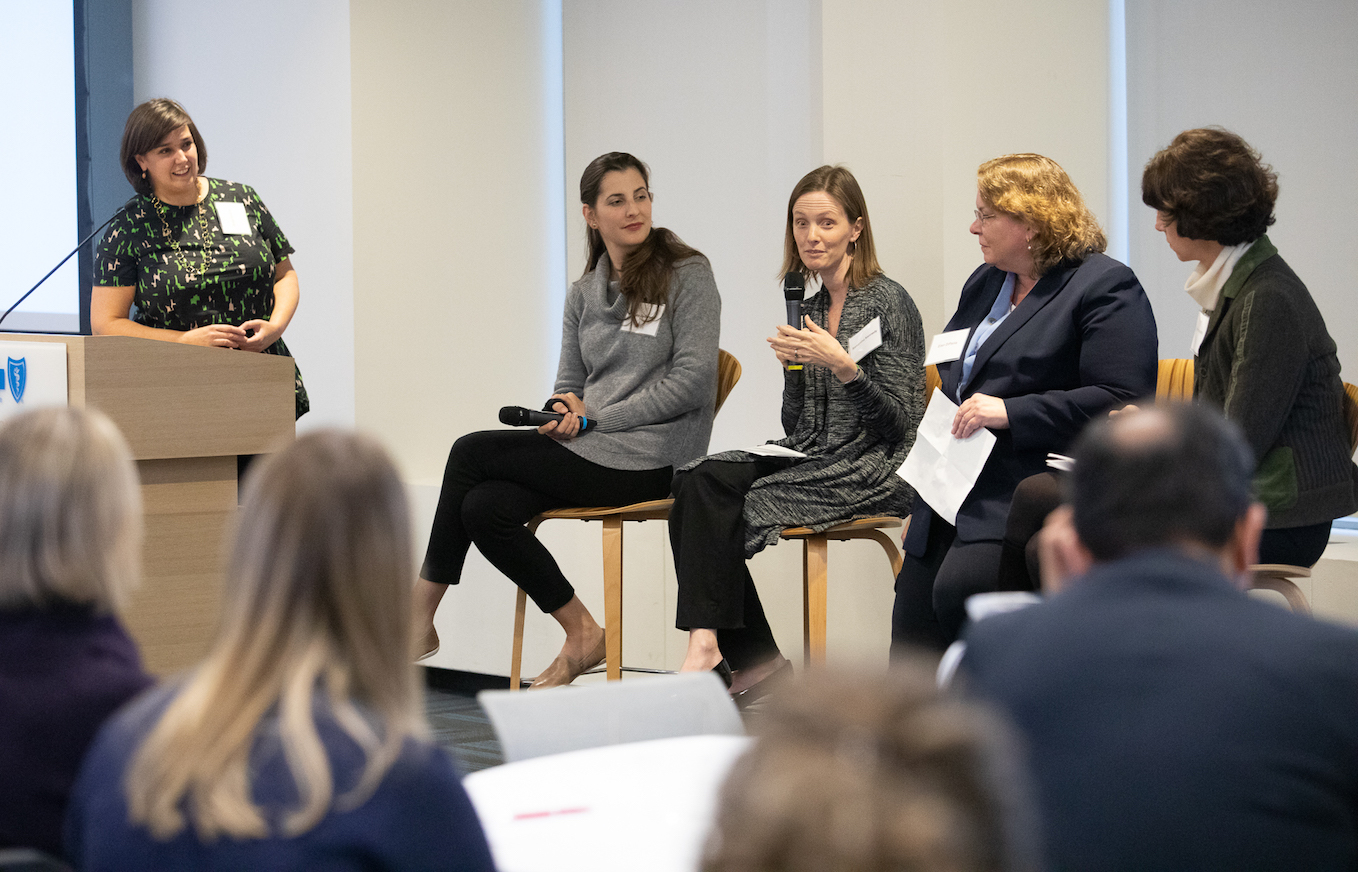
Hitting the road to promote better communication about what matters most
The Coalition continues to spread the word about the messaging project to colleagues both in the Commonwealth and across the nation. This fall, Coalition Executive Director Anna Gosline travelled out of state to attend several meetings including the CTAC National Summit in Minnesota, CareLab meeting in New York City, and the National Academies of Science, Engineering and Medicine’s Serious Illness Roundtable members meeting in DC. She also went to several in state events including the Massachusetts Northeast-Metrowest Palliative Care Coalition meeting and the Massachusetts Statewide Palliative Care Meeting, as well as participating in several webinars including the NYC-based coalition What Matters: Caring Conversations About End of Life , Honoring Choices Pacific Northwest. And coming up shortly, founding member of the Coalition Andrew Dreyfus, President and CEO of Blue Cross Blue Shield of Massachusetts, will speak at End Well in San Francisco on December 5.
Focus Groups Give the Coalition Insight into Advance Care Planning Challenges for Community Health Organizations

This fall, the Coalition and The Conversation Project teamed up with the Massachusetts League of Community Health Centers (the League) to better understand how community health centers, which serve lower-income and ethnically diverse communities, are currently addressing the issue of advance care planning with their more than one million patients. The group hosted a series of online focus groups that engaged more than 30 individuals over a period of three weeks. Participants included health center nurse managers, behavioral health directors and chief medical officers.
Most attendees joined because they were eager to hear from their colleagues on this topic. Two overarching themes emerged from the discussions. The first reflects the day-to-day challenge of managing patient care across a broad range of clinical and non-clinical issues. According to League Vice President of Clinical Health Affairs Susan Dargon-Hart, health center staff often help patients manage chronic disease, access fresh food, and enroll in health coverage all at the same time. “It’s definitely a challenge to figure out when and how to fit in yet another important conversation with our patients and their families,” says Dargon-Hart. Health center clinicians also indicated that they have had limited exposure to structured advance care planning care programs. In response, participants requested the development of a grid that outlines how responsibilities for advance care planning could be shared across their inter-disciplinary teams, including community health workers and other non-clinical staff members.

